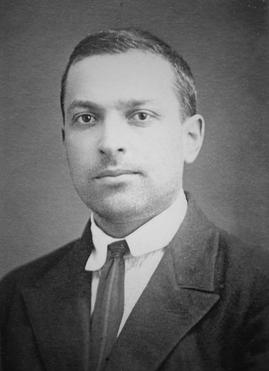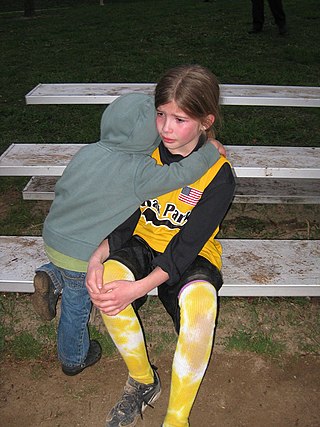
Developmental psychology is the scientific study of how and why humans grow, change, and adapt across the course of their lives. Originally concerned with infants and children, the field has expanded to include adolescence, adult development, aging, and the entire lifespan. Developmental psychologists aim to explain how thinking, feeling, and behaviors change throughout life. This field examines change across three major dimensions, which are physical development, cognitive development, and social emotional development. Within these three dimensions are a broad range of topics including motor skills, executive functions, moral understanding, language acquisition, social change, personality, emotional development, self-concept, and identity formation.
Educational psychology is the branch of psychology concerned with the scientific study of human learning. The study of learning processes, from both cognitive and behavioral perspectives, allows researchers to understand individual differences in intelligence, cognitive development, affect, motivation, self-regulation, and self-concept, as well as their role in learning. The field of educational psychology relies heavily on quantitative methods, including testing and measurement, to enhance educational activities related to instructional design, classroom management, and assessment, which serve to facilitate learning processes in various educational settings across the lifespan.

In sociology, socialization is the process of internalizing the norms and ideologies of society. Socialization encompasses both learning and teaching and is thus "the means by which social and cultural continuity are attained".

Lev Semyonovich Vygotsky was a Russian and Soviet psychologist, best known for his work on psychological development in children and creating the framework known as cultural-historical activity theory. After his early death, his books and research were banned in the Soviet Union until Joseph Stalin's death in 1953, with a first collection of major texts published in 1956.
In social psychology, an interpersonal relation describes a social association, connection, or affiliation between two or more persons. It overlaps significantly with the concept of social relations, which are the fundamental unit of analysis within the social sciences. Relations vary in degrees of intimacy, self-disclosure, duration, reciprocity, and power distribution. The main themes or trends of the interpersonal relations are: family, kinship, friendship, love, marriage, business, employment, clubs, neighborhoods, ethical values, support and solidarity. Interpersonal relations may be regulated by law, custom, or mutual agreement, and form the basis of social groups and societies. They appear when people communicate or act with each other within specific social contexts, and they thrive on equitable and reciprocal compromises.
Lawrence Kohlberg was an American psychologist best known for his theory of stages of moral development.
Psychology is an academic and applied discipline involving the scientific study of human mental functions and behavior. Occasionally, in addition or opposition to employing the scientific method, it also relies on symbolic interpretation and critical analysis, although these traditions have tended to be less pronounced than in other social sciences, such as sociology. Psychologists study phenomena such as perception, cognition, emotion, personality, behavior, and interpersonal relationships. Some, especially depth psychologists, also study the unconscious mind.

Intrapersonal communication is communication with oneself or self-to-self communication. Examples are thinking to oneself "I will do better next time" after having made a mistake or imagining a conversation with one's boss in preparation for leaving work early. It is often understood as an exchange of messages in which sender and receiver are the same person. Some theorists use a wider definition that goes beyond message-based accounts and focuses on the role of meaning and making sense of things. Intrapersonal communication can happen alone or in social situations. It may be prompted internally or occur as a response to changes in the environment.

In sociology, a peer group is both a social group and a primary group of people who have similar interests (homophily), age, background, or social status. The members of this group are likely to influence the person's beliefs and behaviour.

Empathy is generally described as the ability to take on another's perspective, to understand, feel, and possibly share and respond to their experience. There are more definitions of empathy that include but are not limited to social, cognitive, and emotional processes primarily concerned with understanding others. Often times, empathy is considered to be a broad term, and broken down into more specific concepts and types that include cognitive empathy, emotional empathy, somatic empathy, and spiritual empathy.
Cultural psychology is the study of how cultures reflect and shape their members' psychological processes.
In sociology and psychology, poisonous pedagogy, also called black pedagogy, is any traditional child-raising methods which modern pedagogy considers repressive and harmful. It includes behaviours and communication that theorists consider to be manipulative or violent, such as extreme forms of corporal punishment.

Jean Decety is an American–French neuroscientist specializing in developmental neuroscience, affective neuroscience, and social neuroscience. His research focuses on the psychological and neurobiological mechanisms underpinning social cognition, particularly social decision-making, empathy, moral reasoning, altruism, pro-social behavior, and more generally interpersonal relationships. He is Irving B. Harris Distinguished Service Professor at the University of Chicago.
Cultural mediation describes a profession that studies the cultural differences between people, using the data in problem solving. It is one of the fundamental mechanisms of distinctly human development according to cultural–historical psychological theory introduced by Lev Vygotsky and developed in the work of his numerous followers worldwide.
The theory-theory is a scientific theory relating to the human development of understanding about the outside world. This theory asserts that individuals hold a basic or 'naïve' theory of psychology to infer the mental states of others, such as their beliefs, desires or emotions. This information is used to understand the intentions behind that person's actions or predict future behavior. The term 'perspective taking' is sometimes used to describe how one makes inferences about another person's inner state using theoretical knowledge about the other's situation.
Moral development focuses on the emergence, change, and understanding of morality from infancy through adulthood. The theory states that morality develops across the lifespan in a variety of ways. Morality is influenced by an individual's experiences, behavior, and when they are faced with moral issues through different periods of physical and cognitive development. Morality concerns an individual's reforming sense of what is right and wrong; it is for this reason that young children have different moral judgment and character than that of a grown adult. Morality in itself is often a synonym for "rightness" or "goodness." It also refers to a specific code of conduct that is derived from one's culture, religion, or personal philosophy that guides one's actions, behaviors, and thoughts.
Role-taking theory is the social-psychological concept that one of the most important factors in facilitating social cognition in children is the growing ability to understand others’ feelings and perspectives, an ability that emerges as a result of general cognitive growth. Part of this process requires that children come to realize that others’ views may differ from their own. Role-taking ability involves understanding the cognitive and affective aspects of another person's point of view, and differs from perceptual perspective taking, which is the ability to recognize another person's visual point of view of the environment. Furthermore, albeit some mixed evidence on the issue, role taking and perceptual perspective taking seem to be functionally and developmentally independent of each other.

Legal socialization is the process through which, individuals acquire attitudes and beliefs about the law, legal authorities, and legal institutions. This occurs through individuals' interactions, both personal and vicarious, with police, courts, and other legal actors. To date, most of what is known about legal socialization comes from studies of individual differences among adults in their perceived legitimacy of law and legal institutions, and in their cynicism about the law and its underlying norms. Adults' attitudes about the legitimacy of law are directly tied to individuals' compliance with the law and cooperation with legal authorities.
Social emotional development represents a specific domain of child development. It is a gradual, integrative process through which children acquire the capacity to understand, experience, express, and manage emotions and to develop meaningful relationships with others. As such, social emotional development encompasses a large range of skills and constructs, including, but not limited to: self-awareness, joint attention, play, theory of mind, self-esteem, emotion regulation, friendships, and identity development.
Grazyna Kochanska is a Polish-American developmental psychologist known for her research on parent-child relationships, developmental psychopathology, child temperament and its role in social development. She is the Stuit Professor of Developmental Psychology at the University of Iowa.







